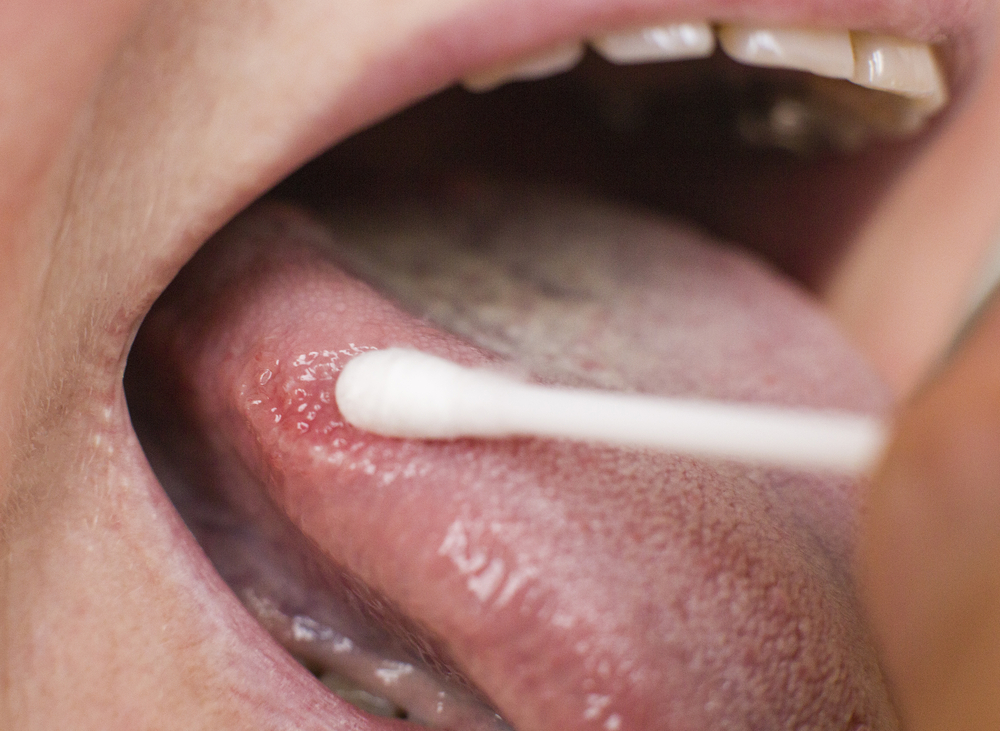
Before you get all thingy and being all Doctor Googly on yourself, realise that oral cancers are relatively rare, and represent only about three percent of all cancers.
Tongue cancers are oral cancers that are differentiated as such by their location in the mouth. If the cancer is on the forward portion of the tongue, it is known as a squamous cell cancer of the oral tongue; if it ‘s located towards the rear third of the tongue, it is known as a squamous cell cancer at the base of the tongue.
The characteristics of these two cancers are quite distinct. It reflects the differences in their origins and the reason that treatment of these two forms of tongue cancer is quite different.
Generally, the first sign of cancer of the oral tongue is a persistent and pinkish-red sore at the side of the tongue that doesn’t seem to heal. Quite often, it bleeds easily if bitten or touched. If this is the case, it is recommended that a physician be sought, particularly if the person in question is above the age of fifty.
In its earliest developmental period, cancer of the base of the tongue is asymptomatic and really doesn’t make itself known until later in its growth. It’s not unusual for symptoms to begin with pain in the tongue and surrounding tissue. Changes in voice tones and timbre, as well as experiencing difficulty in swallowing and feelings of bloatedness can also occur. Because the early symptoms are dormant, most squamous cell cancers of this part of the tongue are further advanced by the time diagnosis is made. Squamous cancer cells are often already present in the lymph nodes of the neck.
Unsurprisingly the causes show as a list of the usual suspects: smoking or chewing tobacco or betel nut, excess alcohol, persisting with a diet high in sugar, red meat and processed foods. Poor oral hygiene can be a factor and dental hygiene is important, but too much cleanliness can aggravate the flesh.
Having a family history of either or both of these squamous cell cancers is of course extremely pertinent to the likelihood of affliction.
Contracting a human papillomavirus infection (HPV) is also considered a cause.
Squamous cell carcinomas are considered aggressive forms of cancer and have generally affected odder members of the population.
Statistically, if the cancer has spread far, the five-year relative survival rate is 36%. If it is, for example, in the lymph nodes of the neck, the relative survival rate is 63%. If there is no cell growth activity beyond the tongue, the five-year relative survival rate is 78%.
CT and MRI scans help to determine how far the cancer has spread. Staging helps your oncology team decide on the best treatment options for you.
Commonly surgery is an effective treatment for mouth cancers, particularly in the early stage to remove any tumours. The extent of the surgery depends on the size and reach of the tumour. Sometimes surrounding tissue and lymph nodes are also removed.
Radiation and chemotherapy are highly effective therapies, and most of us have some kind of connection with someone enduring either, and sometimes both these treatments.
All in all, good to avoid. Entirely. So maybe move yourself out that race right now if you can.
According to research not so much independent, around 59% of mouth cancers in Australia are the result of smoking and 31% caused by excess alcohol consumption. So making intelligent lifestyle choices will significantly reduce your risk of developing an aggressive mouth cancer. Seems that according to those numbers, if you smoke and drink you have an increased your chances by 90%.
Always consult medical practitioners if you sense something doesn’t seem right. By the same token don’t self-diagnose because anxiety about cancer may need its own treatment.




